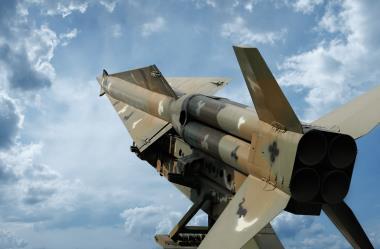StrategicRISK asks Swedish trendspotter and futurologist, Magnus Lindkvist, about the role of emerging markets and the future of the global economy

It seems to be the new ‘truth’ that there is currently a power shift taking place from West to East – do you think that this is the case?
If you talk about a power shift it’s usually using a zero-sum mindset, then yes. By all means we can see that a greater proportion of things are being handled and influenced by the East.
But the problem of course is that the history of capitalism is one where markets grow, transform and become something completely new and different over time.
I believe that we are mistaking growth figures and doing a rather sloppy extrapolation in terms of future thinking. Many are thinking, “wow – these growth figures are so amazing. This means that these countries are going to be amazingly huge in 50 years time”, which is a bit like saying that because my four-year-old sons have been growing at such a stellar rate, they will grow to be at least 50 meters tall.
So you’re a little bit of an emerging market sceptic then?
Yes. In terms of growth, I believe in the famous S-curve where you see periods of accelerated growth, followed by a levelling out.
Most of the opportunity in many of those markets right now has to do with labour costs advantages, and that I believe is temporary. I don’t believe that’s a sustainable model over decades. Already we can see that salary levels in, for example China, having risen by 20% this year.
Any company should be engaged in two activities: exploitation and exploration.
Then, with time, as many of your demands and needs have been satisfied, and you’ve worked to a certain level of comfort you start to say “maybe I’ll take Sundays off”, and “maybe I should demand a four week vacation just like they have in Europe”, and then you have almost an identical situation.
So for multinationals in the short-term you have magical new customers appear and efficiency gains. In the long run though it’s a little bit back to square one as you have to be innovative and find new reasons why people want to buy your things.
If we take China as an example, say, what opportunities are there for European businesses now?
Any company should be engaged in two activities: exploitation and exploration.
Exploitation of course is about efficiency. For many companies China has been an efficiency engine; European companies have been outsourcing production to China for cost benefits and so on. However, I believe the opportunity for this will be temporary.
It’s also given European businesses magical new customers to sell to and adapt to. Look at [German car manufacturer] Daimler – all their growth is in China.
That, in the short run is a great thing. In the long run, however, it’s a little bit of a mirage because there are only so many cars you can buy before everyone has one.
Fifty years from now, China will probably look like the United States, and so increasingly the challenges facing businesses in China will be similar to challenges facing businesses everywhere.
And do you feel that Western businesses are better placed to take advantage of this?
The thing we haven’t seen conclusively yet is whether Chinese companies are really capable of innovation? So far they have failed to show conclusively that they can deliver innovations that the world embraces.
Most of the school systems in Asia are based around subservience. Confucianism too – which is highly dominant in China – is all about respecting the elders. I believe that many of these things are at odds with the Californian, innovative mindset which requires you to be a mischief.
There’s a wetware in Europe and the US which is quite valuable. The mindset to challenge authority, to rebel, to destroy and so on, which is actually a more important part of innovation than just efficiency and productivity gains.
In terms of social reform in China, do you envisage this as being a smooth transition or one with the potential for internal conflict?
A likely scenario is kind of split of China where you see the city states, Shanghai, Beijing, Tianjin etc. being on a par economically in terms of ideas and interest with New York and London and so on, but that a big turmoil happens within the country, possibly even breaking it apart.
So whilst we might still do business with some of the city states, the country behind them is falling apart – which would be a very unfortunate thing obviously.
Some people argue that the leadership in China is far too clever to ever let this happen; that they have already got game plans in place, and processes happening right now to slowly drip-feed reform into the mix.
I don’t think a conflict of some sort is unlikely in the coming decades. It’s obviously undesirable, but I’m not sure it’s unlikely.
I’m a little bit worried I must say, I don’t think a conflict of some sort is unlikely in the coming decades. It’s obviously undesirable, but I’m not sure it’s unlikely.
If and when this does occur, do you think it has the potential to spill over into other countries? Is the South Pacific a geopolitical risk hotspot?
Asia is very fragmented; it’s almost like Europe in a sense, so you can easily envisage a scenario where China is engaged in internal conflict, but where many other parts of Asia are unaffected, so that I suppose is a good thing.
Is it unavoidable? Nothing ever is. The thing about China is that as a nation it’s highly nationalistic. So if an external threat looms, for example if the US becomes more belligerent towards China or defines it as a security risk, or if Taiwan decides to play China and the US off against one another then we might have something very nasty.




















No comments yet